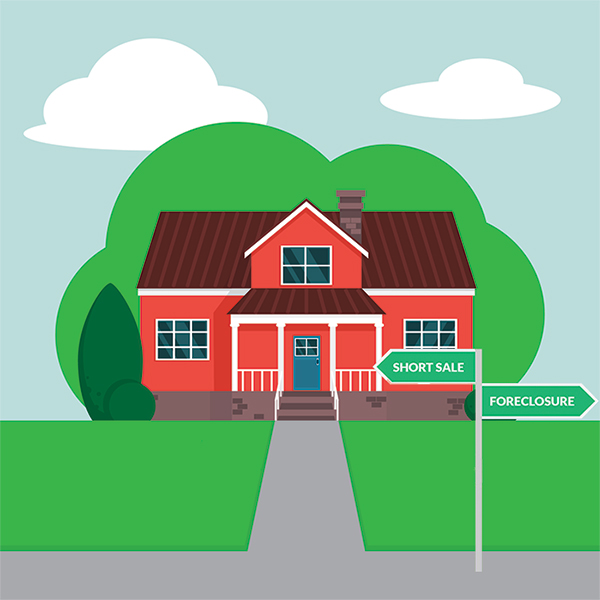This is a very common question that new investors wonder about. Let’s take a look at what each of them and how they compare.
What is a short sale?
Most commonly, short sales occur when a homeowner is “underwater” with their mortgage, meaning they owe more to the mortgage lender (usually a bank) than the market value of their property. You the investor, on behalf of the homeowners, can negotiate a deal with the mortgage lender to settle the debt for a lesser amount. For example, if you purchase a property for $100,000 but the remaining balance due on the mortgage is $150,000, then your purchase is $50,000 “short” of paying back the lender. Click here to get advice and insights from a short sale specialist!
What is a foreclosure sale?
The overall definition of a foreclosure encompasses the entire process that occurs when a homeowner is unable to make mortgage payments for a significant amount of time. First, the mortgage lender will give ample notice to a homeowner, informing them they are facing foreclosure and at risk of losing their property. If no deal is made between the homeowner and the lender, then the lender will schedule a foreclosure auction date to unload the property. This auction is the foreclosure sale. Click here for a jumpstart into foreclosure auctions!

Here are 3 difference between a foreclosure sale and a short sale for you, the investor.
- First is the amount of waiting time. Short sales take longer than foreclosure sales because you will need lender approval to pay them less — and no one wants that. Additionally, you will also need to negotiate with the homeowners, which are now the people that you will be evicting — and no one wants that either. The negotiation process can be tedious and time consuming, with closing times taking up to a year. Foreclosure sales/auctions are a lot faster because there are no negotiations. If you pay for the property, and you get approval of sale from the courts, then you get possession.
- That segues into the second difference, the forms of payment. Foreclosure sales/auctions are cash only, while short sales can be purchased with a mortgage. This is a huge deciding factor and one that needs to be carefully considered/planned.
- Finally, the price of your investment comes in at number three. Foreclosure sales/auctions start with a set price that is the opening bid amount. Raising the price is therefore, 100% up to you as you see fit. Proper research, due diligence, and advice from a full-service foreclosure auction specialist is the easiest and safest way to purchase. You will need cash up front to bid at an auction, then pay the non-negotiable winning bid within 24 hours.
The price of a short sale is up to the lender. Because of this, lenders may seek additional restitution, most commonly for fees like closing costs, taxes, or some repairs — basically everything a typical seller would be responsible for in a regular real estate sale. However, unlike a foreclosure sale, these fees are negotiable, which can prove to be a big advantage for the round table savvy investor.
Whichever path you choose, you’ll still be getting amazing deals on properties below market value to turn into a nice profit — and everyone wants that.
Happy investing!
